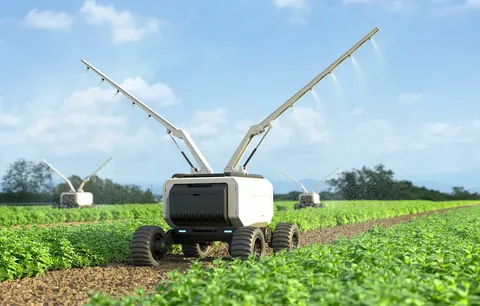Agriculture is evolving rapidly with the integration of technology. Small-scale farmers, who often face challenges such as limited resources, unpredictable weather, and market access, are now benefiting from innovative tools that can increase productivity and sustainability. Smart Agriculture Solutions for Small-Scale Farmers are transforming the way these farmers cultivate crops, manage resources, and enhance profitability.
Understanding Smart Agriculture
Smart agriculture, also known as precision farming, leverages modern technologies such as the Internet of Things (IoT), drones, sensors, and data analytics. These tools help farmers monitor soil health, water usage, and crop growth in real-time. For small-scale farmers, adopting these solutions can be a game-changer by reducing waste, saving time, and optimizing yields.
Key Technologies in Smart Agriculture
1. IoT-Based Monitoring Systems
IoT sensors can track soil moisture, nutrient levels, and temperature. By receiving real-time alerts on their mobile devices, small-scale farmers can make informed decisions on irrigation and fertilization. This reduces the risk of overuse of water and fertilizers, improving sustainability.
2. Drone and Satellite Imaging
Drones and satellite imagery provide small-scale farmers with a bird’s-eye view of their fields. They can detect crop diseases early, assess plant growth, and even identify areas requiring immediate attention. This precision allows farmers to act proactively and increase crop yields.
3. Mobile Applications and Platforms
Smart agriculture platforms offer small-scale farmers access to weather forecasts, market prices, and expert guidance. These apps help farmers plan better, reduce losses, and connect with buyers, ensuring a better return on investment.
Benefits for Small-Scale Farmers
Implementing Smart Agriculture Solutions for Small-Scale Farmers provides several advantages:
- Increased Productivity: Accurate monitoring ensures optimal resource usage.
- Cost Savings: Reduced wastage of water, fertilizers, and pesticides.
- Sustainability: Environmentally friendly practices that preserve soil and water.
- Market Access: Technology helps farmers connect with buyers and markets efficiently.
Challenges and Considerations
While smart agriculture offers numerous benefits, small-scale farmers may face challenges such as the initial cost of technology, lack of technical knowledge, and connectivity issues in rural areas. However, with proper training programs and government support, these barriers can be overcome.
Conclusion
Adopting Smart Agriculture Solutions for Small-Scale Farmers is no longer a luxury but a necessity in modern farming. By embracing technology, small-scale farmers can achieve higher productivity, reduce environmental impact, and improve their livelihoods. Governments, NGOs, and private organizations must continue to support these initiatives to ensure that smart farming becomes accessible to all.

